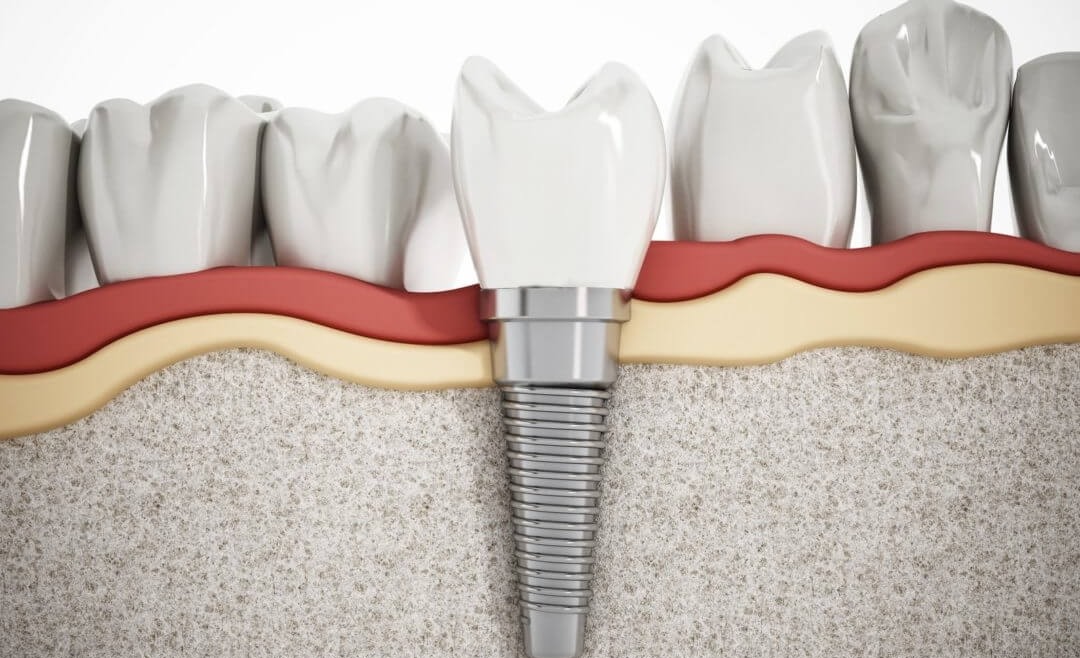Have you been considering getting dental implants but have questions about how it all works? Dental Implants have become the strong alternative to dentures or bridges, creating opportunities for patients to restore their natural-looking smile in a new, permanent way. What some patients may not realize is that getting a dental implant is oral surgery that requires preparation, planning and healing time. Clear communication of expectations on the part of both patient and doctor are crucial for getting successful results.
The Why and Benefits
A patient with one or more missing teeth may choose a dental implant instead of a bridge or denture for a multitude of reasons. Bridges may damage surrounding healthy teeth over time while dentures sometimes present a hassle and unnatural feeling for chewing and speaking. Dental implants provide a permanent solution that restores the natural smile without doing harm to surrounding healthy teeth.
Not everyone is eligible to get dental implants. A patient must have a mature jawbone and healthy oral tissues for the implant to go into. Some health conditions, including some diseases, may delay or make surgery unfeasible for a patient. Only working closely with a periodontist or a dental surgeon can determine an individual patient’s risks and benefits.
Getting Dental Implants is Oral Surgery
A dental implant is installed by drilling a cylinder post directly into the jawbone. That post serves as the replacement for the root of your missing tooth. If your jaw does not have sufficient bone to hold the post properly, a bone graft (bolstering existing bone with bovine bone or even freeze-dried bone) is required.
Because this is surgery, taking your time to find a specialist who you like and understand is essential. While there are some general dentists who offer implants, it’s important to meet with a specialist like a periodontist or an oral surgeon, as they have completed several years more of specialty training to perform this and other special oral procedures. See specialists, get their opinions and ask them questions. Discuss your desires for the function of your new tooth, and establish a strong rapport with clear communication before things get going. When you and your doctor can be open and honest with each other, surprises can be kept at a minimum.
Getting Dental Implants May Involve Pain
There are risks with any surgery and dental implant surgery is no different. While complications are rare, there have been cases of nerve damage in the jaw or in the gums, as well as infection after surgery. Swelling of your gum at the implant site, swelling of your face, minor bleeding and irritation afterward are much more common. You should talk about expectations for pain during the healing process before and after the procedure. Your surgeon may be able to prescribe you, pain killers, after the procedure is over. They may also ask you to eat soft foods and do other things to mitigate some of your discomforts as your jaw heals.
Getting Dental Implants Takes Time
One thing that some patients may not know about getting new dental implants is that it is a process that takes several months to complete. Most of that time is inactive as you wait for your jaw to heal and for the jaw to set into place (this is call osseointegration). There is also time required for the soft tissues of your gum to heal as the upper layers of the implant (the abutment and then the artificial tooth) are put in place.
The best way to find out if getting a dental implant to replace your broken tooth is the right path for you is to reach out to your dental professional and start asking questions. From there, you can start seeking out information from specialists like a periodontist or surgeon and start building a relationship with the person you ultimately choose. Time and pain management will be crucial for your process, as well as expectation setting and clear communication. Just as having an implant installed takes time, so does choosing the dental professional who is right for you. In the end, doing the work beforehand will yield you the beautiful results you are looking for.
Wonder if dental implants are the right solution for your missing teeth? Have questions about how our practice does it and if we’re right for you? Please give us a call. We’d be delighted to talk to you and answer your questions.


